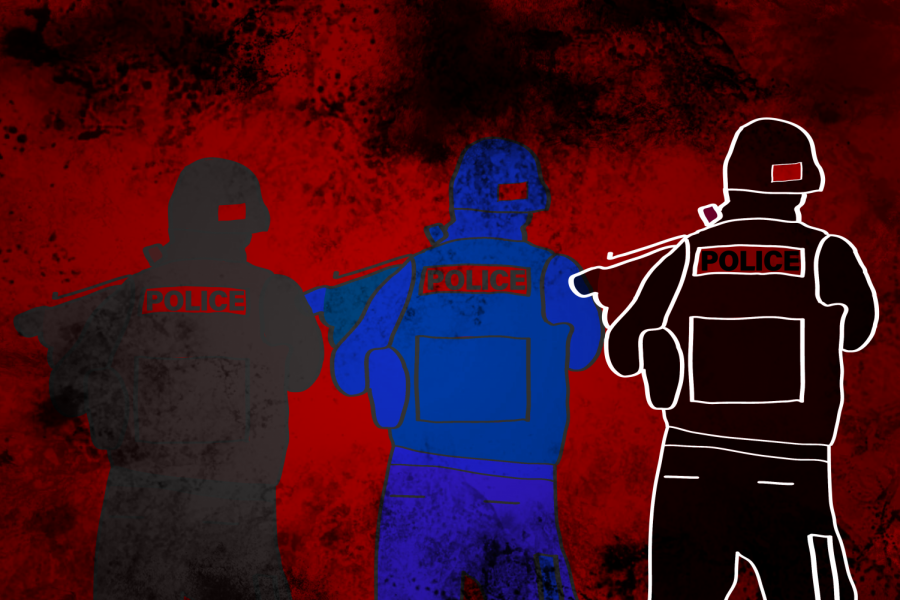The University of Minnesota is hosting three virtual teach-in events to bring activists, scholars and students together to discuss race, policing and the criminal justice system in the murder trial of Derek Chauvin.
On Monday, the first teach-in, “Criminal (in)Justice, Race, and Policing: Derek Chauvin, Mohamed Noor, and Beyond,” featured four panelists: associate professors Keith Mayes and Michelle Phelps; Sam Martinez, an activist with Twin Cities Coalition for Justice 4 Jamar; and University law graduate Ian Taylor. Race, Indigeneity, Gender and Sexuality Studies Initiative and the Interdisciplinary Collaborative Workshop host the teach-ins.
The day after the first teach-in, the jury in the murder trial of former Minneapolis police officer Derek Chauvin found him guilty of second-degree murder, third-degree murder and second-degree manslaughter.
Panelists at the teach-in discussed the potential outcome of a guilty verdict, including other topics such as reparations, social movements and police reform. More than 350 people attended the teach-in.
“If Derek Chauvin is convicted in any of the charges, he’ll likely appeal to the Court of Appeals,” Taylor said. “If that’s affirmed there, then he’ll appeal to the Minnesota Supreme Court. … When it’s affirmed at that level, then what happens is that it establishes state precedent.”
As a result, judges trying similar cases in the future will need to abide by the established precedent set by equal or higher courts, Taylor added.
Former Minneapolis police officer Mohamed Noor’s case is up for appeal in June. Jurors convicted him of third-degree murder and second-degree manslaughter in 2019 for the killing of Justine Ruszczyk. Noor’s appeal, if successful, could impact Chauvin’s case and sentencing.
In the discussion, panelists responded to a question about the differences between Noor’s case and the upcoming trial of former Brooklyn Center police officer Kim Potter, including race and gender disparities in the criminal legal system.
“I think this question touches on obviously something really important, which is how perceptions of how racialized men or Black men move through spaces versus how white women move through spaces and how we interpret those actions. And I think those disparities are met at almost every sector of our society,” Taylor said.
Potter is facing a second-degree manslaughter charge after firing the shot that killed Daunte Wright. Taylor said the main difference, in the legal sense, between Potter and Noor is the charges they face.
The defendant’s mental state is a key factor that influences the charges from the prosecutors. Taylor said prosecutors need to evaluate whether the defendant acted with a “depraved mind,” meaning that the defendant acted in reckless disregard of life or unreasonable risk.
Phelps said the Chauvin murder trial has prompted public conversations about the use of force, expectations from law enforcement and more.
“There’s all of these ways that the trial has inadvertently put policing on trial, even as the prosecution attempts to distance itself,” Phelps said. “If we do get a conviction, I think that sends a message, right? That police don’t have this blank slip for police violence, and I think that’s an important message for the trial to send.”
Amber Joy Powell, the moderator and a University Ph.D. candidate in sociology, asked the panelists if a conviction of Chauvin is a victory and a sign of justice.
“The most basic answer is no. Nothing is going to bring back George Floyd. Nothing is going to bring back Jamar [Clark],” Martinez said. “Nothing is going to stop these families from the mental and emotional harm that’s happened or that we’ll have to deal with for so many years down the road.”
After the announcement of the jury’s verdict, crowds cheered and nearby cars honked in support. Still, many people echoed the same sentiment as Martinez — the work is not over. During the last half of the teach-in, panelists answered submitted questions. One attendee asked about the vision of reparations after the murder of George Floyd.
“We have to do a long cost accounting of all the ways that Black and brown people have been discriminated against and done wrong,” Mayes said. “You’re going to have to add it up from areas of housing, education, forced labor, unpaid labor, violent deaths — you can just name it, on and on and on. I don’t think there’s enough money in the U.S. treasury if it’s going to be monetary to pay Black folks back, but we have to start.”


















